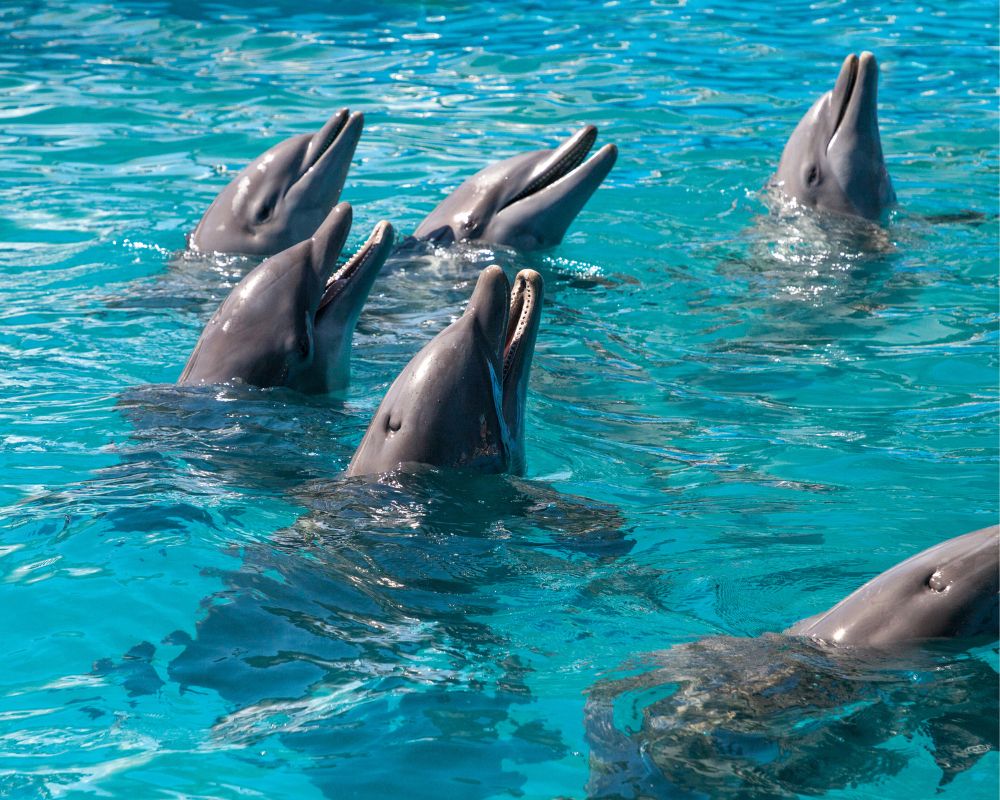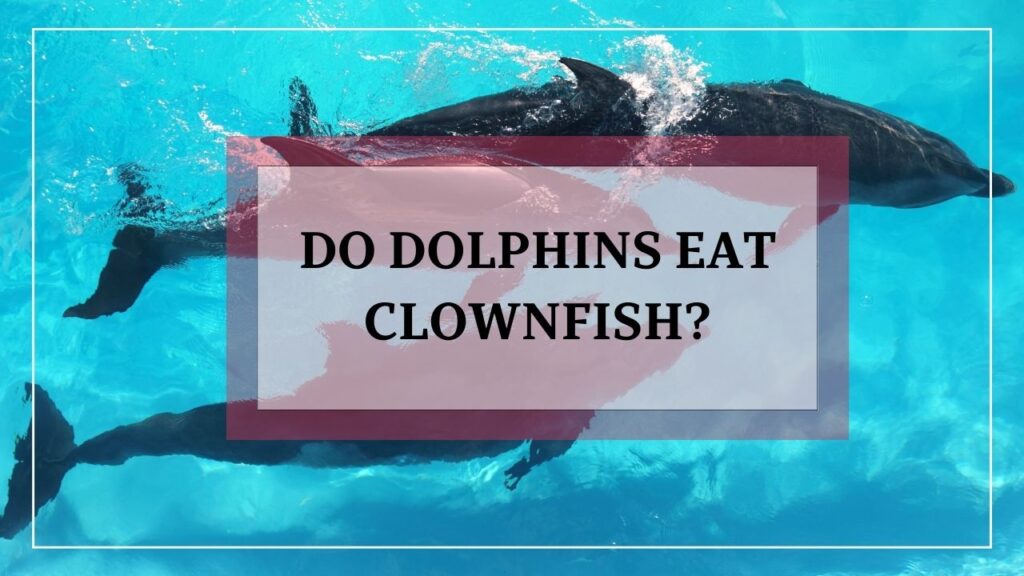If you’re like me, you’ve probably seen the movie “Finding Nemo” and wondered, “Do dolphins really eat clownfish?” Well, wonder no more, because I’m here to answer that question and give you some insight into the world of these fascinating creatures.
Dolphins are known for their intelligence, playfulness, and curious nature. They are one of the most beloved marine animals and have captured the hearts of people all over the world. Clownfish, on the other hand, are known for their bright colors and unique symbiotic relationship with anemones. They have become popular aquarium fish and are often seen in home aquariums.
I’m excited to share my knowledge with you. So, let’s dive in and explore the question, “Do dolphins eat clownfish?”
Do Dolphins Eat Clownfish?

The short answer is no, dolphins do not typically eat clownfish. While dolphins are opportunistic predators and will eat a variety of prey, clownfish are not a common part of their diet.
However, there have been rare instances where dolphins have been observed eating clownfish.
Factors that Determine Whether Dolphins Would Eat Clownfish
Factors such as the habitat and location of both the dolphins and clownfish can also play a significant role in determining whether dolphins would eat clownfish.
1. Location
Dolphins are typically found in open ocean environments and are known to hunt in deeper waters. Clownfish, on the other hand, are reef-dwellers and are usually found in shallow waters near coral reefs.
This difference in habitat means that dolphins and clownfish may not interact with each other very often. Dolphins may not even encounter clownfish in their natural habitat, which would make it difficult for them to hunt them as prey.
Additionally, clownfish are not known to venture far from their anemone hosts, so they may not even be visible to dolphins swimming nearby.
2. Size And Nutritional Value
Another factor that determines whether dolphins would eat clownfish is the size and nutritional value of the prey. Dolphins are known to be opportunistic predators and will eat whatever prey is available to them. However, they tend to prefer larger prey items that provide a high nutritional value.
Clownfish are small fish and are not known to provide a significant amount of nutrition to their predators. This may be another reason why dolphins do not commonly eat clownfish, as they may not provide enough energy to justify the effort required to catch them.
3. Hunting Strategy
Another important factor that determines whether dolphins would eat clownfish is their hunting strategy. Dolphins are highly intelligent predators and have developed specialized hunting techniques to catch their prey. [1]
For example, they may use echolocation to locate their prey, and then use their speed and agility to catch it.
However, clownfish are known to have a unique adaptation that makes them less vulnerable to predation – they live in symbiosis with sea anemones. The anemones provide protection for the clownfish by stinging potential predators, while the clownfish provides nutrients for the anemones by bringing them food.
This means that catching a clownfish may require a more specialized hunting strategy that takes into account the presence of the anemone, which could pose a threat to the dolphin. As a result, dolphins may avoid hunting clownfish due to the difficulty and risk involved.
Furthermore, dolphins are known to be highly social animals and typically hunt in groups. Hunting clownfish, which are typically found in small groups near the safety of their anemone hosts, may not be worth the effort and risk for a group of dolphins.
Instead, they may focus on hunting larger prey items that are more plentiful and provide more energy for the group as a whole.
Finally, it’s worth noting that the diet of dolphins can vary significantly depending on the species and geographic location.
While clownfish are not a typical part of the diet of most dolphin species, there may be some populations that have adapted to hunt and eat them more frequently due to specific environmental factors.
Conclusion
In conclusion, while it’s possible for dolphins to eat clownfish, it’s unlikely to be a regular part of their diet due to several factors.
These include the availability of larger prey items, the unique adaptation of clownfish to live in symbiosis with sea anemones, and the specialized hunting strategies of dolphins.
It’s important to note that the diet of dolphins can vary significantly depending on the species and geographic location.
Therefore, more research is needed to better understand the feeding habits of different dolphin populations.

